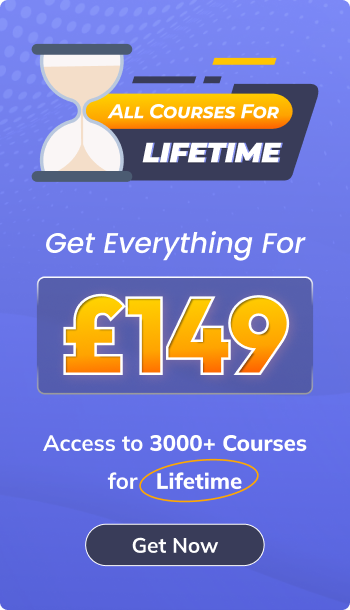
It can be quite challenging to study as an employee with domestic commitments. Fortunately, a virtual program offers both flexibility and structure. It not only allows you to continue with your current job, but also prevents compromises on family time. Understanding the practical strategies needed to manage the demands of an intensive program can quickly help you stay efficient. This can also lead to higher pay and greater career opportunities.
Table of Contents
The Nature of an Online PhD
Academic Rigor and Curriculum
A doctorate in educational leadership online offers students a thorough and challenging curriculum to cultivate advanced abilities. The program focuses on critical thinking, policy analysis, and managing intricate educational institutions.
Coursework
The syllabus is designed to offer a comprehensive understanding through a progressive series of topics. Starting with fundamental theories, students gradually engage with more advanced subjects. This includes organizational change, data-driven decision-making, and conflict resolution. A structured approach ensures that individuals attain a deep understanding that is necessary to drive innovation and lead reforms.
Research and Dissertation
A crucial aspect of the PhD experience is conducting surveys and writing a final report. This pushes students to add original insights to academic administration. The process includes pinpointing gaps in current studies, developing research questions, and using suitable methods to investigate them. Ultimately, this results in a comprehensive dissertation that provides fresh perspectives on the best educational leadership practices.
Time Commitment and Milestones
Pursuing an online degree requires a considerable time investment. This generally ranges from three to five years based on learning progress and program design. The journey is also characterized by several important milestones that help track advancement and add structure to the overall experience.
Typical Milestones
Significant achievements in the doctoral journey encompass:
– Finishing coursework
– Passing comprehensive exams
– Defending the proposal
– Presenting the final dissertation
Each serves as a checkpoint to verify that students are progressing correctly and have adequate mastery of their subject area. These benchmarks also aim to increase the breadth of knowledge and research skills honed throughout the program.
Management Needs
Students must formulate strategies to balance their coursework, research activities, and personal obligations. This typically includes:
– Establishing achievable goals
– Devising a structured timetable
– Prioritizing tasks effectively
Leveraging digital tools like calendar applications and project management software can also help manage the numerous deadlines and duties linked with the program.
Task Coordination Strategies
Communicating with Employers
Discussing academic commitments in advance helps establish realistic availability and workload capacity expectations. By communicating effectively, students can also cultivate an understanding of work environments that accommodate the dual demands of employment and education. This can potentially result in more supportive office policies.
Transparency and Negotiation
Students should be ready to highlight how their academic pursuits might benefit the organization. This could be through improved skills or fresh perspectives on leadership within the company. Discussions may also include negotiating study leave or flexible working hours, aiming for advantageous solutions for both parties.
Balancing Work and Academic Deadlines
Creating a well-defined schedule that caters to both areas can help avoid conflicts and minimize stress. Prioritizing tasks according to their urgency and significance also aids in sustaining productivity. This means both high-quality work output and superior academic performance.
Using Productivity Tools
Solutions like task managers, digital calendars, and specialized project management apps can effectively help monitor deadlines and milestones. These also quickly aid in:
– Organizing tasks
– Setting reminders
– Allocating specific times for research, writing, and professional obligations
Flexible Work Arrangements
Custom plans allow students to better align their learning schedules with professional commitments. Options such as telecommuting, altered work hours, or compressed workweeks offer can effectively help balance all responsibilities.
Negotiating Flexibility
It is crucial for students to showcase how dynamic arrangements can result in more focused and productive work outputs. Additionally, suggesting a trial period for new schedules can be advantageous. This enables adjustments if a timetable fails to align with team or organizational needs.
Sustaining a Healthy Personal Life
Maintaining Relationships and Well-being
Balancing an online degree with work and daily routines can considerably pressure relationships and overall well-being. It is crucial to actively nurture bonds with family and friends, ensuring these connections stay robust. Regular, meaningful interactions offer essential emotional support and help counter the isolation often associated with demanding academic endeavors.
Time Management
Designating specific hours for social activities, exercise, and hobbies is essential. This approach supports a balanced lifestyle and builds thriving relationships. By setting boundaries around study and work hours, individuals can also easily safeguard cherished moments.
Psychological Aspects of Balancing Life
Managing the stress of an intense routine requires a strong foundation in mental health. Acknowledging the emotional burden and taking proactive steps to maintain well-being are essential for long-term success.
Tension Management Tactics
Mindfulness, sports, and engaging in your favorite hobbies can significantly alleviate pressure. Establishing realistic goals and cultivating a positive mindset can also aid in handling the challenging demands of academic life.
Establishing a Dedicated Study Space
Establishing a suitable spot for learning is crucial for maintaining both focus and productivity. This space should support extended study periods, minimizing the distractions often present in home settings. A tidy, quiet environment can also quickly improve concentration and make each session more effective.
Minimizing Interruptions
Practical strategies to reduce distractions include:
– Establishing clear study hours
– Minimizing the use of technology and using apps to block social media
– Communicating your schedule with housemates or family members
– Eliminating noise and disturbances by shutting doors/windows and using ear buds
Enhancing Academic Performance
Effective Online Learning Strategies
To thrive in an online PhD program, students should implement strategies that boost comprehension. This includes establishing a structured study schedule and actively participating in classes. Utilizing interactive resources like webinars, online discussions, and digital libraries can also bolster the entire experience. It can also lead to a better understanding of complex subjects.
Engagement with Content
Students are encouraged to stay proactive by taking notes, posing questions, and engaging in online forums. Active participation not only aids in information retention, but also cultivates a deeper connection with the subject matter. It quickly boosts both the effectiveness and enjoyment of the entire process.
Interaction with Advisors and Peers
Frequent communication with professors can offer valuable feedback and assistance throughout the dissertation journey. Likewise, engaging with fellow students provides mutual encouragement, diverse viewpoints, and opportunities for collaboration.
Building a Supportive Academic Environment
Active involvement can be channeled through:
– Regular online meetings
– Participation in study groups
– Attending conferences and seminars
These interactions aid networking and enhance the educational experience through unique insights and experiences.
Managing Large Projects
Completing a dissertation necessitates meticulous planning and organization. Dividing the project into smaller sections can help sustain progress. This strategy can also enable students to approach complex tasks methodically, minimizing burden and boosting productivity.
Task Segmentation
This entails breaking the project into manageable phases, assigning deadlines to each step, and regularly monitoring progress. A rounded approach not only enables prompt adjustments, but also helps consistently achieve set objectives.
Maintaining Enthusiasm
In order to stay focused, it is vital to establish clear goals. Achieving small milestones can also offer a sense of pride and help channel perseverance.
Handling Setbacks
Challenges are an inherent aspect of any academic journey. Building resilience to these hurdles requires cultivating a flexible mindset and implementing strategies for managing failures. Embracing feedback, revising goals when needed, and practicing self-compassion can help pave a direct path towards success.
Long-Term Planning and Goal Setting
Defining Realistic Targets
Achievable objectives offer both guidance and motivation. They enable students to progress through their academic journey with a clear purpose.
Short and Long-term Goals
Immediate targets may involve finishing assignments punctually or preparing for upcoming exams. On the other hand, long-term objectives can center on completing dissertation chapters or publishing research work. Balancing these milestones facilitates consistent progress and aids in maintaining focus on completing the PhD.
Review and Adjustment
Regularly revisiting goals enables students to stay adaptable and responsive to shifts in both academic and personal areas. This ongoing evaluation also quickly highlights what is effective and what requires modification. It can further guarantee that objectives are consistent with real abilities and situations.
Staying on Track
This can be made easier using a detailed planner or digital tools. Regular meetings with an advisor can also offer external accountability and valuable feedback.
Future Career Opportunities
Pursuing an online PhD can significantly enhance professional opportunities. It can prepare graduates for high-level positions in educational leadership, policymaking, and academia. Gaining insight into the career landscape and potential salary prospects can also inspire students throughout their journey.
Impact of an Online PhD
Graduates are frequently recognized as authorities in their discipline, possessing the expertise and capabilities to implement change and foster innovation. This can open doors to more significant responsibilities, higher salaries, and rewarding positions that have a meaningful impact on the education sector.
Endnote
Juggling a doctorate with personal and professional commitments is challenging yet manageable with the right strategies. By utilizing effective work management techniques and nurturing a healthy routine, students can thrive instead of just surviving. Long-term planning and continuous goal setting are also crucial for laying the groundwork for a successful career.










